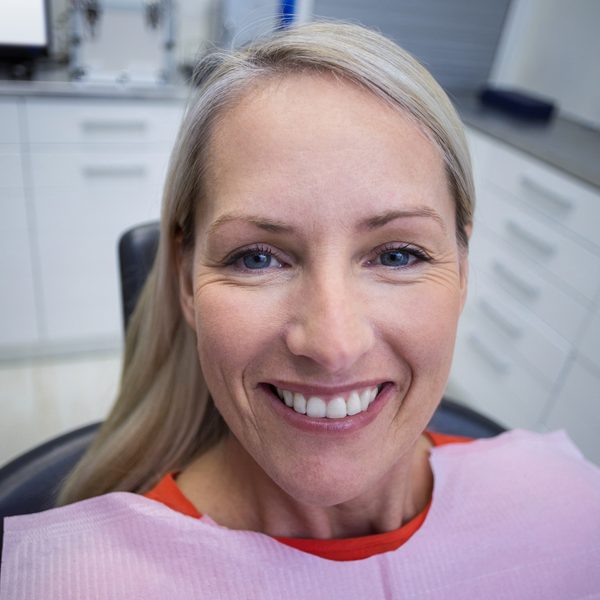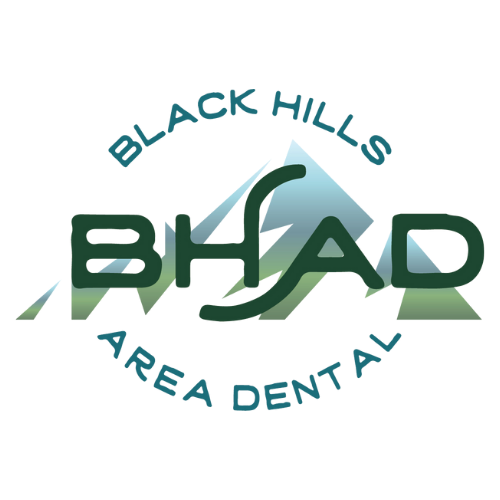At Black Hills Area Dental, we believe prevention is the best treatment, making oral cancer screenings an essential part of the preventive visits. Oral cancer is a health issue that can be found earlier and treated.
Patient education is our core focus, and our team can discuss the warning signs, risk factors, and how to prevent oral cancer.
Risk Factors of Oral Cancer
Having a particular lifestyle or habits may put you at a higher risk of developing oral cancer. Genetics can also contribute to whether you get the disease. Although anyone can get oral cancer, you may be more susceptible if the following risk factors apply to you:
- Using traditional and smokeless tobacco products
- Being male
- Severe alcohol use
- Being over 55 years old
- Having other family members with a history of oral cancer
- History of HPV
Oral Cancer Prevention
Preventing this disease begins with an oral cancer screening. We perform twice-yearly screenings to check for abnormal tissue, shifting teeth, discolored bumps, and other inconsistencies.
We’ll discuss any finding and arm you with the knowledge to help further prevent you from developing oral cancer.
Contact Us for Oral Cancer Screening Services in Rapid City, SD
If you notice signs like lumps, bumps, and other abnormalities in your mouth, consider getting an oral cancer screening at Black Hills Area Dental. As your Rapid City, SD, dental experts, we understand the importance of detecting cancer early for a more successful treatment.
What is a Periodontal Screening?
A periodontal screening is a quick and non-invasive dental procedure performed to assess the health of your gums and the bone structure supporting your teeth. During the screening, Dr. Bart Samuelson of Black Hills Area Dental will use a special instrument called a periodontal probe to measure the depth of the pockets around each tooth above and below the gumline. This helps to identify any signs of gum disease, also known as periodontal disease. The probe gently slides along the space between the tooth and gums to determine attachment levels and detect periodontal pockets. Measurements deeper than 3 millimeters often indicate unhealthy gum tissue. If detected early, periodontal disease can be treated and managed effectively with nonsurgical cleanings or antibiotics. Catching gum disease in its early stages prevents more serious dental issues down the line like chronic infections, receding gums, bone and tooth loss. That’s why regular periodontal screenings are an important preventative tool to maintain your oral health.
Why is a Periodontal Screening important?
Periodontal screenings are crucial in maintaining overall oral health. Periodontal disease often starts without noticeable symptoms, making it difficult to detect without professional examination. If left untreated, it can lead to tooth loss and has been linked to other serious health conditions such as heart disease and diabetes. Regular periodontal screenings allow for early detection and treatment, preserving not only your oral health but potentially your overall health as well.
During a screening, your dentist will carefully examine your gums, measure the space between your teeth and gums, and check for signs of bleeding, inflammation, or infection. This provides valuable information about the presence and severity of gum disease to formulate an appropriate treatment plan. Catching and treating gum disease early is key to preventing permanent damage to the tissues and bone supporting your teeth. Over time, untreated disease can loosen teeth, requiring extraction, and may even impact proper chewing and nutrition. Routine screenings enhance the chances of reversing damage when it is still in its early reversible stages. Protecting your oral health also eliminates a major gateway for bacteria and inflammation to spread and aggravate issues like heart disease, diabetes, stroke, and respiratory disease.
How often should I get a Periodontal Screening?
The frequency of periodontal screenings can vary depending on your individual oral health condition. Generally, it is recommended to have a periodontal screening during your regular dental check-ups, which should occur every six months. However, if you have a history of gum disease, are a smoker, or have other risk factors for periodontal disease, Dr. Samuelson may recommend more frequent screenings. It’s always best to discuss your personal needs and concerns with your dentist to determine the most appropriate schedule for you.
Remember, periodontal screenings are an essential part of your dental care routine. So, if you’re in the Rapid City, SD area and it’s time for your next dental check-up and periodontal screening, don’t hesitate to reach out to Dr. Bart Samuelson at Black Hills Area Dental at (605) 348-4657. Your oral health is our priority!

Laser Assisted Periodontal Therapy
What do laser assisted scaling and root planing treatments involve?- Laser assisted scaling and root planing treatments are only performed after a thorough examination of the mouth. The dentist will take X-rays, conduct visual examinations and make a diagnosis before recommending or beginning these procedures.
Depending on the current condition of the gums, the amount of calculus (tartar) present, the depth of the pockets and the progression of the periodontitis, local anesthetic may be used.
Scaling- This procedure is usually performed with special dental instruments and may include an ultrasonic scaling tool. The scaling tool removes calculus and plaque from the surface of the crown and root surfaces. In many cases, the scaling tool includes an irrigation process that can also be used to deliver an antimicrobial agent below the gums that can help reduce oral bacteria
Root Planing- This procedure is a specific treatment which serves to remove cementum and surface dentin that is embedded with unwanted microorganisms, toxins and tartar. The root of the tooth is literally smoothed in order to promote good healing. Having clean, smooth root surfaces helps bacteria from easily colonizing in future.
Laser Treatment- Following these deep cleaning procedures, the gum pockets and root surfaces will be treated with a water laser to promote reattachment of the gum tissues. This will soothe irritation and help the gum tissues to heal quickly and promote reattachment of the gum tissue to the tooth.
During the next appointment, the dentist or hygienist will thoroughly examine the gums again to see how well the pockets have healed. If the gum pockets still measure more than 3mm in depth, additional and more intensive treatments may be recommended.

